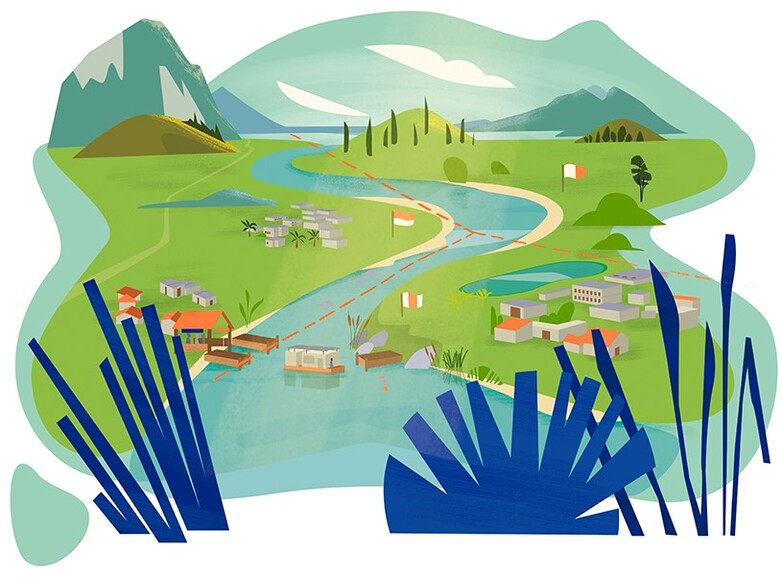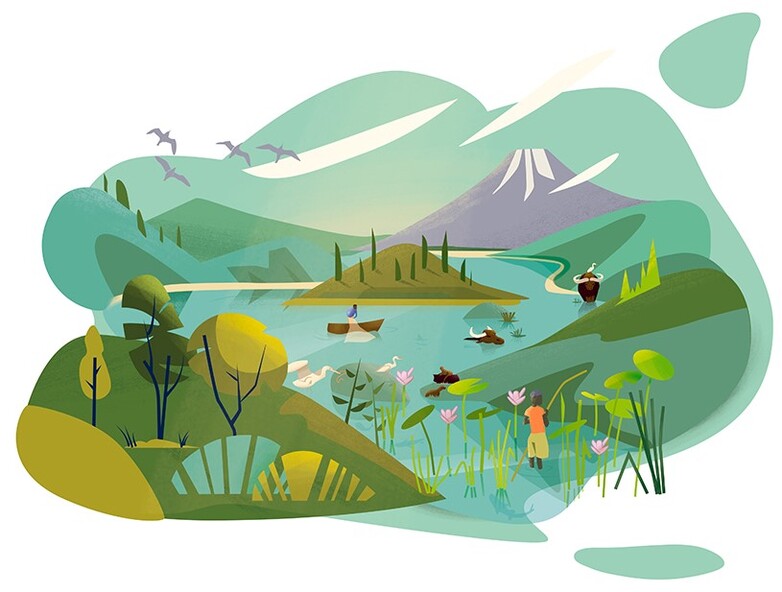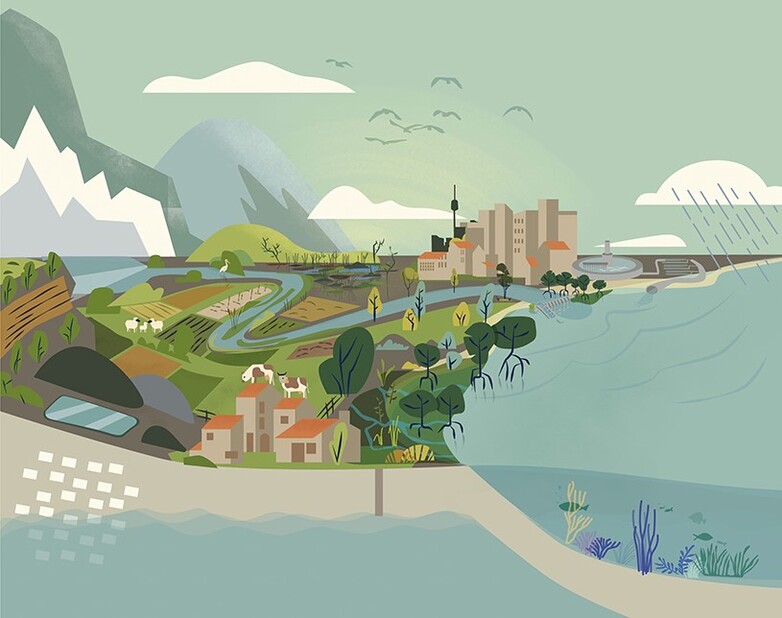Improving water security and climate resilience through advice and innovation
Water policy – innovations for resilience
-
Commissioning Party
German Federal Ministry for Economic Cooperation and Development (BMZ)
-
Country
-
Overall term
2020 to 2024
-
Products and expertise
Sustainable infrastructure: water, energy, transport

Context
Climate-resilient water management, safe access to drinking water and reliable hygiene and sanitation are the foundation for climate adaptation and mitigation, health, food security, peace and resilient ecosystems and societies.
According to the United Nations (UN), two billion people worldwide do not have access to reliable clean drinking water, and three and a half billion people do not have adequate sanitation. Population growth and the impacts of climate change are putting pressure on water availability and quality, while urbanisation, industrial and economic development and land use change are further exacerbating the situation.
Objective
The German Federal Ministry for Economic Cooperation and Development (BMZ) is successfully implementing its integrated approaches and thus improving water security as a basis for people, ecosystems and long-term economic development.

Approach
The project supports BMZ with expert advice, concept development, innovations and financing. The approaches developed are incorporated into policy documents, development strategies, project planning and investments via German and international organisations.
In addition to a safe drinking water supply and sanitation services that protect people and the environment, the project aims to improve the availability of water resources. It promotes nature-based solutions for climate change adaptation and mitigation as well as biodiversity. There is a focus on good governance and the participation and systematic empowerment of women and girls in the water sector. For example, the project supports concepts for menstrual health and hygiene as well as the global networking of key players for sustainable sanitation.
Through targeted approaches, the project contributes to resolving transboundary resource conflicts and supports partnerships with private actors and civil society and international alliances with member states of the United Nations (UN) and the European Union (EU) in order to increase water security worldwide.
Last update: December 2023





